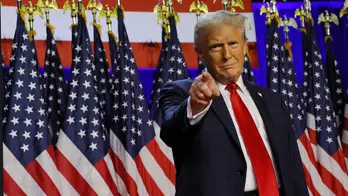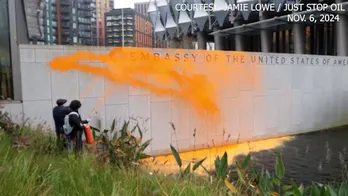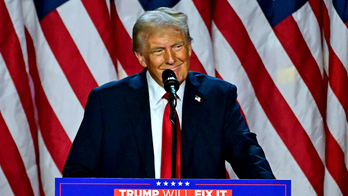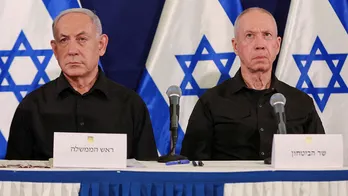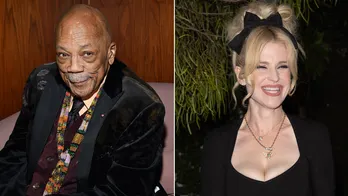Spain, soccer and an unwanted World Cup kiss: the Luis Rubiales firestorm, explained
Luis Rubiales has been at the center of an international firestorm since he placed an unwanted kiss on the mouth of star Spanish soccer player Jenni Hermoso at the Women's World Cup final on August 20.
Rubiales, who was then president of Spain's soccer federation, RFEF, claimed the kiss was mutual and that Hermoso had consented. Hermoso says that is "categorically false."
"I felt vulnerable and a victim of an impulse-driven, sexist, out of place act without any consent on my part," she wrote in a statement.
Suspended by FIFA, pressured by the federation and under investigation by Spanish prosecutors, Rubiales resigned his position on September 10. But the legal proceedings against him are just beginning, and the World Cup victors aren't satisfied with the changes so far at the Spanish federation.
Here's where things stand:
The accusations against Rubiales
Rubiales appeared in Spanish court for the first time on Friday, after Hermoso submitted a formal complaint against him, prompting state prosecutors to formally accused him of sexual assault and an act of coercion, The Associated Press reports. Rubiales denied any wrongdoing.
Judge Francisco de Jorge issued a restraining order against Rubiales, barring him from being within 200 meters (656 feet) of Hermoso. State prosecutors had asked for a 500-meter ban and a requirement for Rubiales to check in with a judge every 15 days, but the judge rejected that, as well as Hermoso's attorney's request for Rubiales' assets to be frozen, the AP reports. De Jorge is conducting the preliminary investigation in the case and will decide whether it will go to trial, per the AP.
Rubiales' court appearance came less than a week after he announced his resignation as president of the soccer federation. It also followed an announcement by FIFA that it was provisionally suspending Rubiales from all soccer-related activity for 90 days while it conducts disciplinary proceedings against him.
In a post on X from an account that appears to belong to Rubiales, a statement said: "After the swift suspension carried out by FIFA, plus the rest of the procedures opened against me, it is evident that I will not be able to return to my position."
"I have faith in the truth and I will do everything in my power to make it prevail," the statement continued.
RFEF confirmed his resignation.
Meanwhile, Spain's Sport Administrative Court has opened its own case in the matter, investigating complaints of "serious misconduct," alleged abuse of authority and "public acts that violate sporting dignity or decorum," Reuters explains. The court could find Rubiales unfit to hold future office.
What exactly happened at the World Cup?
Spain's victory over England — the first ever World Cup title for the women's team — was supposed to be a moment of triumph. But it was quickly overshadowed by Rubiales' actions.
During the tournament's medal ceremony, the Spanish squad proceeded through a receiving line that included Rubiales. As he greeted Hermoso, Rubiales hugged the star forward tightly, then pulled her head toward his face and kissed her firmly on the lips.
Video also showed Rubiales making a crotch-grabbing gesture in the dignitaries box just after Spain's win over England, a few feet away from Spain's Queen Letizia and her teenage daughter, Princess Sofia.
After the match, Rubiales was in the locker room, where he announced to the team that they will all be going to Ibiza and then said: "There we will celebrate the wedding of Jenni and Rubiales."
The furor over his behavior began immediately, and Hermoso says the federation continuously pressured her to make a statement in support of Rubiales' actions. Rubiales at first waved away criticism of his behavior, then offered an apology. Then, at an emergency meeting of the federation on August 25, he repeated five times "No voy a dimitir" – I will not resign.
What are the consequences Rubiales is facing?
Spain made changes to its laws on sexual assault last year, following an uproar over a gang-rape case in 2016.
Under what's known as Spain's "Only Yes Is Yes" law, a non-consensual kiss can be considered sexual assault, the BBC explains. Rubiales could face a fine or a prison sentence of one to four years if he's found guilty of sexual assault.
He'll certainly take a financial hit. Rubiales resigned from two highly paid positions: president of the Spanish soccer federation, as well as his post as vice president of UEFA, the European soccer body. He was reportedly paid $688,462 in 2021 by the Spanish federation, as well as an annual salary of $270,000 by UEFA.
What's happening with the Spanish women's national team?
After Rubiales initially refused to resign, the entire Women's World Cup-winning team and dozens of other Spanish players put out a statement calling for structural changes and said they would not play for Spain while the current leaders were in place.
The federation then fired women's coach Jorge Vilda, who had been close with Rubiales and already the subject of a player rebellion last year. To replace him, the federation announced that the team's new head coach would be Montse Tomé. Tomé was an assistant coach to Vilda, and is the first female coach to lead Spain's women's team.
But many Spanish players say that's still not enough.
Tomé was set to announce her squad for next week's game against Sweden and the following match, but those plans are now delayed.
Midfielder Alexia Putellas posted a statement on Friday, signed by 39 players — including 21 out of 23 from the World Cup squad — listing changes they demand. They include: restructuring the women's soccer organization, the presidential cabinet and General Secretariat; the resignation of the RFEF president (now Pedro Rocha); and restructuring of communications and marketing as well as integrity management.
"The specified changes to the RFEF are based on zero tolerance for those people who, from a position within the RFEF, have had, incited, hidden or applauded attitudes that go against the dignity of women," the statement says.
Spanish sports law requires that athletes answer call-ups to the national teams unless they are injured or other circumstances prevent them from playing, the AP reports.
The upcoming matches are part of the Nations League, a competition that will determine which countries qualify for the 2024 Olympics in Paris.
Disclaimer: The copyright of this article belongs to the original author. Reposting this article is solely for the purpose of information dissemination and does not constitute any investment advice. If there is any infringement, please contact us immediately. We will make corrections or deletions as necessary. Thank you.

